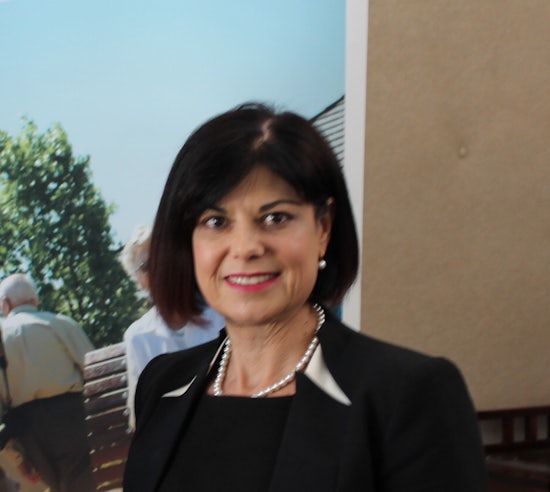Dementia in retirement villages – an emerging issue
Living with dementia in retirement villages will be studied in what has been described as a ‘first’, with Alzheimer’s Australia NSW conducting a research project on whether people with dementia are well supported in a village environment.

Nieves Murray, IRT Group chief executive, teams up with Alzheimer's Australia NSW to conduct research on whether people with dementia are well supported in a village environment.
The research project, supported by IRT Foundation and the Retirement Living Council, aims to look at the extent to which people with dementia are supported to ‘age in place’ in retirement villages with the help of community care services, the village operators and informal support from other members of the village community.
John Watkins, Alzheimer’s Australia NSW chief executive, says with an estimated 332,000 Australians already living with dementia, which is expected to soar to almost 900,000 people by 2050, it is an important issue.
“We know that when people get a diagnosis of dementia, they want to stay in their communities and carry on with their lives,” Mr Watkins says.
“And they have a right to do so. Retirement villages are a popular choice for many older people and we know this is an emerging issue. The operators of retirement villages will have an important role to play in meeting the housing and support needs of people with dementia in Australia,” he adds.
The research looks into the suitability of the design of retirement villages and the level of informal support available for people with dementia, especially those that are living alone.
The final results of the research will be released in mid 2015.
Nieves Murray, IRT Group chief executive, says the project is a great example of the IRT Foundation supporting research that helps older people age well in their own homes for as long as possible.
“Working in partnership with Alzheimer’s Australia NSW and the Retirement Living Council means that the research will be able to be put into practice and help those who need it most,” Ms Murray says.
Mary Wood, executive director of the Retirement Living Council, says the results of the research will be invaluable in equipping more retirement village operators with the knowledge they need to ensure all residents showing symptoms of dementia get the support they need.
“A retirement village is a great environment for senior Australians who want to stay independent but need some extra support, and this research will ensure villages can support the widest variety of people possible,” Ms Wood says.
September is Dementia Awareness Month and the theme is ‘Creating a Dementia-Friendly Nation’.











![The new Aged Care Act exposure draft is slated for release in December of 2023, but advocates hope to see it rolled out on January 1, 2024. [Source: Shutterstock]](https://agedcareguide-assets.imgix.net/news/articles/wp/agedcareact__0811.jpg?fm=pjpg&w=520&format=auto&q=65)












Comments